Getting rap vocals to sit perfectly in a mix will mostly require compression.
This is why I’ve put together a list of the best compressor plugins for mixing rap, trap and hip-hop vocals to help you choose the right compressor all the time.
It is crucial to choose the best tool for the job if you want to get the best results.
You can’t choose just any plugin then hope for the best.
Not all compressor plugins are designed or built the same.
Some are aggressive, while others sound smooth.
In some cases, you might not even need to control dynamics but apply vocal compression just to add character and attitude.
Best Compressor Plugins For Rap Vocals
So below, you’ll find different compressor plugins for various situations.
These are my favorites for dealing with rap or even trap vocals.
1. Empirical Labs Distressor

The original hardware Distressor is a classic, although not that old (first introduced in 1993) it became popular in most studios all over the world.
So I guess it’s safe to say it’s a vintage compressor.
Hip-Hop mixing engineers have been using the Distressor as a go-to compressor since the 90s.
Although the plugin emulations don’t sound like the real thing they do pack a punch and have some amazing features and add a lot of color.
The Distressor can be a FET or Opto compressor, and a distortion unit just to add rich harmonics to a digital vocal recording.
It’s versatile and super fast, which makes it ideal for rap vocals.
The Distressor has been used on countless hit songs and definitely one of the best compressors for mixing various hip-hop artists.
2. Teletronix® LA-2A
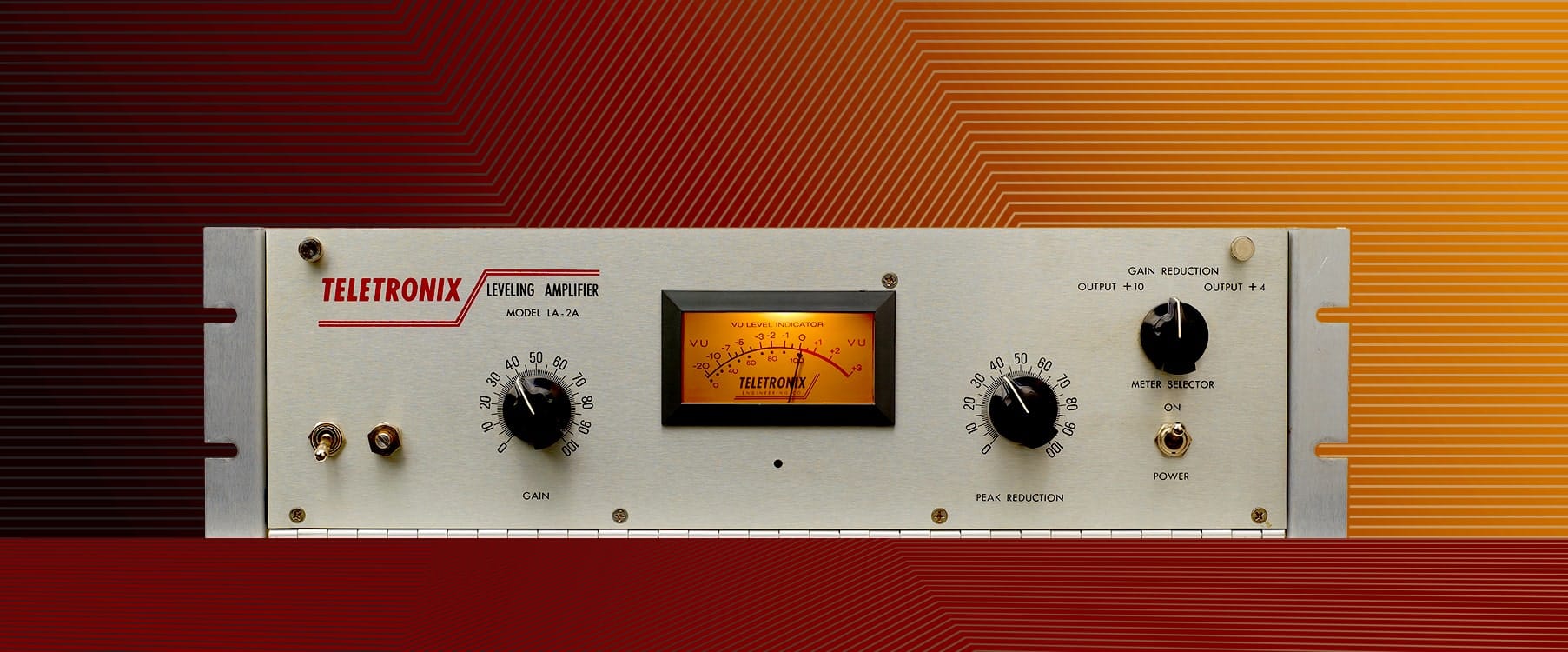
The LA-2A is over 50 years old and yet still one of the best tube compressor plugins for mixing vocals.
It’s famous for its esteemed smooth, organic, and musical style of compression.
Even with the plugin emulations of the LA-2A you still get the legendary optical tube compression textures for your vocals.
The plugins have the same classic compression characteristics as the original.
You can effortlessly add iconic warmth and tube limiting with simple, easy-to-use controls UI.
It’s hard to go wrong with the LA-2A, it will work on almost every recording that you throw at it.
However, on a rap vocal, I tend to use the LA-2A for some minor compression or just to add sonic characteristics.
So, I’ll have one compressor doing most of the heavy compression and control dynamic range, then add the LA-2A after that compressor to add attitude and character.
I always use it in serial and don’t remember a time where I used it on its own.
But it’s always on my vocal mix chain and I really love its sound.
3. 1176LN Classic Limiting Amplifier
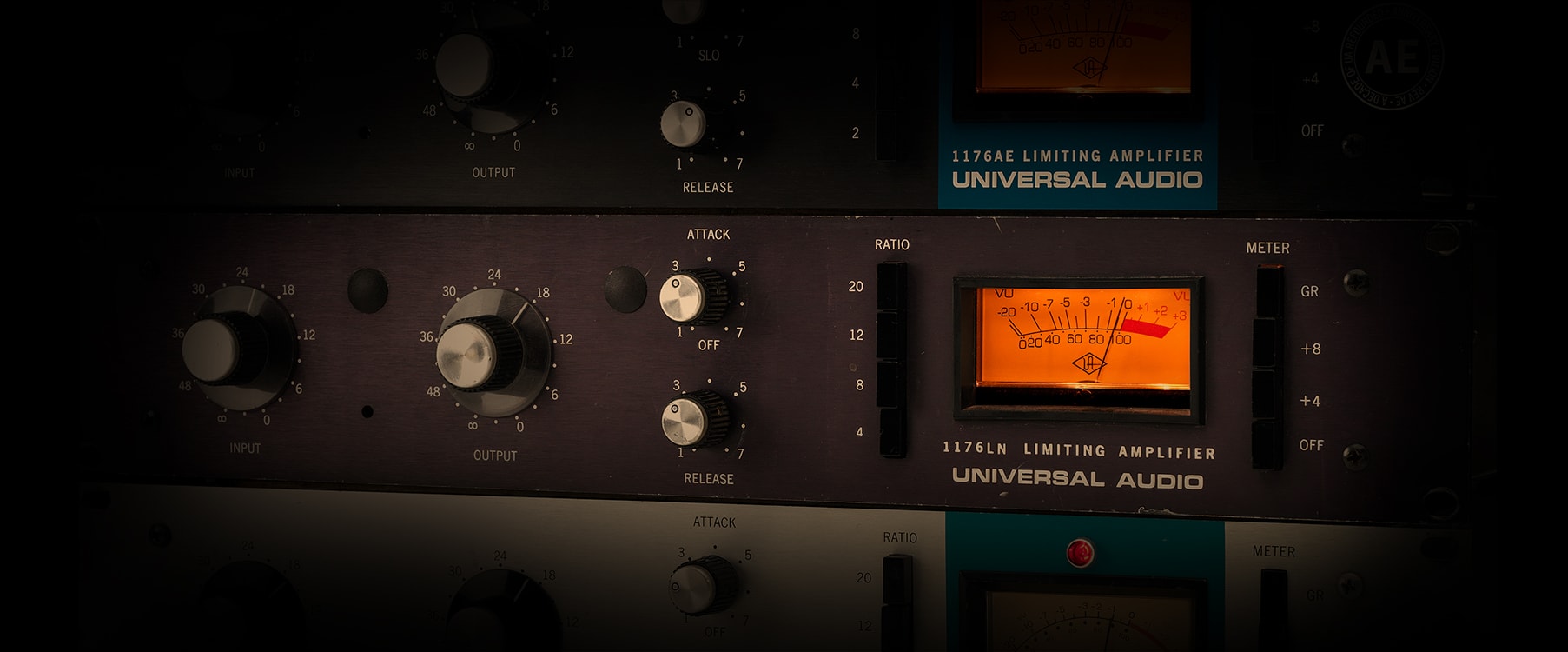
The 1176LN is a legendary FET compressor.
It’s a very fast compressor, which makes it capable of taming out the sharpest transients on a voice.
I like the fact that the output knob saturates the more you increase it.
It also has this desirable sonic character, making it a go-to compressor for most of the best mixing engineers in the world.
The 1176 did set the standard for many compressors that came out after it was released, this is still happening even today.
Since rap and hip-hop vocals are usually percussive and fast, the 1176 is often the best compressor for the job.
One other amazing thing about the 1176 compressor is the fact that it will work perfectly in most cases.
You can use it for smooth compression or even make a voice punchy so that it can cut through the mix nicely.
It’s also a versatile compressor, limiter, and can also be used just to add saturation as well as analog characteristics.
I think this is the swiss army knife of compressors, am I wrong to say that?
I believe I’m right though because whenever I think of compression this often comes first in mind.
Highly recommend and definitely a must-have in your list of the best compressors.
4. Waves Renaissance Vox
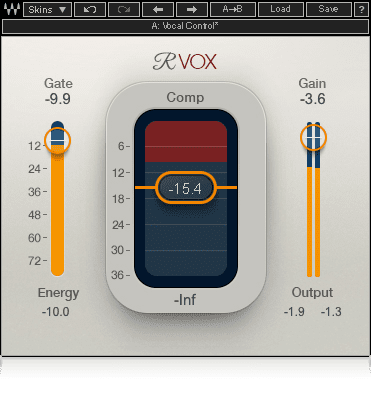
The R-Vox is also one of those go-to vocal compressors for countless Grammy-winning engineers.
It’s also versatile.
It’s a compressor, gate, limiter, and level maximizer in one plugin.
R-Vox uses a soft knee to give you musical-sounding compression, which keeps the voice sounding natural without any artifacts.
Unlike other analog emulation plugins, this one is a transparent compressor. That means it adds no color or analog characteristics, it sounds clean.
When a vocal is struggling to cut through, the Waves R-Vox can help you shape the presence and dominance, more especially on the lead vocal.
It’s popular because it brings out the clarity and attack of a voice and still remains transparent.
The R-Vox is also CPU friendly, which means you can have multiple instances of these plugins without choking your machine.
Highly recommended, an amazing plugin for bringing a vocal upfront and in your face.
5. Softube Tube-Tech CL1 B Mk II
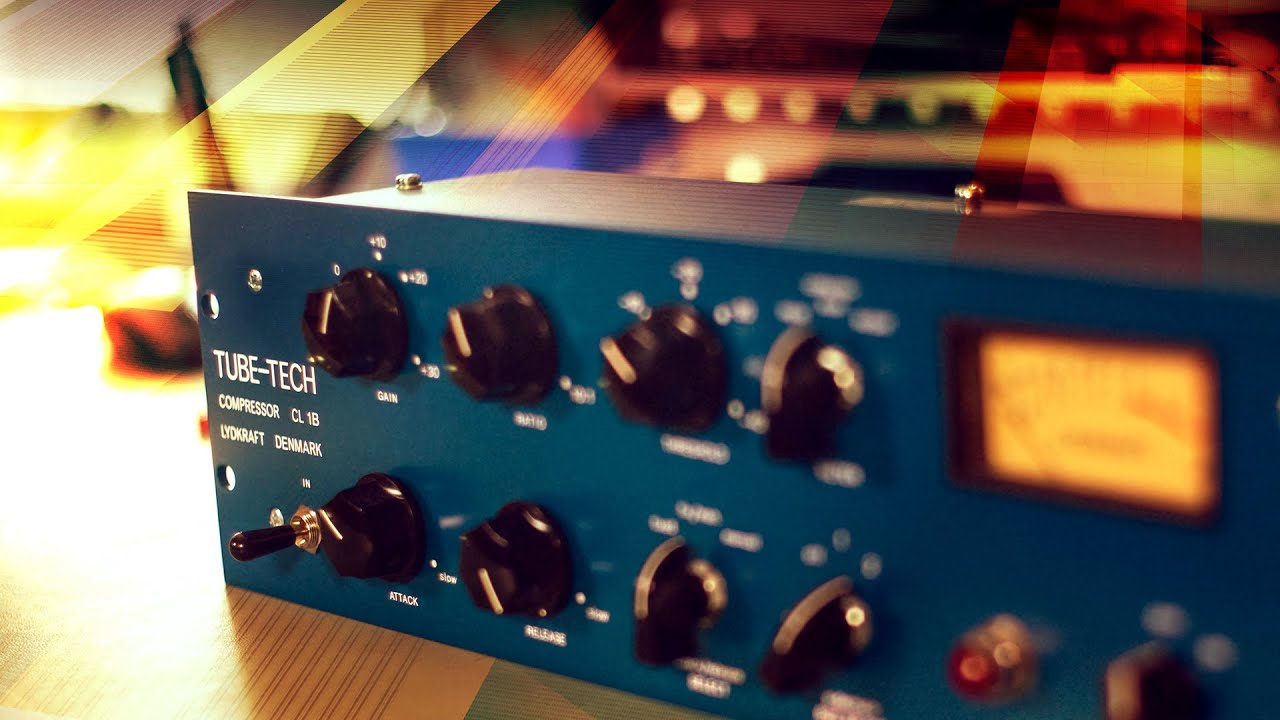
The Tube-Tech CL1 B is a popular recording unit that’s been used in many of your favorite songs.
Even nowadays, a lot of trap vocals are tracked through the Tube-Tech CL1 B.
It is an All Tube Opto compressor.
That simply means there are tubes in the circuit and there are transformers on the circuit.
So, it’s along the lines of the LA-2A which is the most popular Opto compressor.
Unlike the LA-2A though, the Tube-Tech CL1 B has a clearer and transparent type of compression with low distortion.
It became popular for tracking because it can control loud peaks without tempering too much with the frequency response of a vocal.
A lot of compressors tend to suppress the top-end with saturation, but the Opto compressors tend to avoid that and keep the high frequencies intact while still adding warmth and density.
It’s a great compressor for mixing dirty (distorted) or poorly recorded vocals, especially if you want to add some character to a voice without making it sound harsh or bring up the imperfections of the recording.
6. Klanghelm MJUC
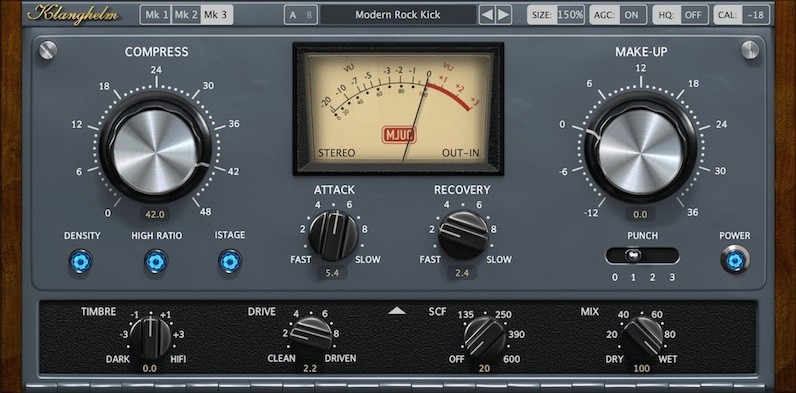
The Klanghelm MJUC is a Variable-Mu compressor. That simply means it’s a tube compressor and adds a lot of color.
The MJUC is packed with features.
My favorite being the TIMBRE parameter, it allows me to control how bright or dark I want the compression to be.
The TIMBRE extends MJUC's use as a tone shaper.
Another important feature that you’ll never find on most compressors is the HQ parameter, which is oversampling.
Since the plugin adds saturation it can cause aliasing, so the HQ button is there to prevent all of that.
Fast attacks can also cause aliasing issues by the way, so this feature is very crucial.
I mostly use the MJUC compressor for adding color to a digital recording and tonal shaping, not so much for compression.
That’s why in most cases, I’ll use it when doing some parallel compression on a vocal.
Another great use for the MJUC is on a vocal bus or group channel. This is just to add some weight and analog warmth to a clean-sounding voice(s).
You can download the free MJUC jr., which is the little brother of the colorful MJUC just to get a taste of what big brother is capable of.
7. Fabfilter Pro-C

In some cases, you just want a clean compressor without all the bells and whistles.
The FabFilter Pro-C is perfect for clean and transparent compression.
Just like the MJUC, it has an oversampling feature to avoid aliasing problems that could be caused by using a super-fast attack time.
The Pro-C can be a classic, uncomplicated analog compressor or transform into a modern all-round compressor with extensive metering and controls.
The secret source is the vocal algorithm. It works great on the lead voice since it’s designed to bring a vocal upfront in a mix.
The algorithm uses automatic knee and ratio settings.
All of that put together with auto-release just makes compressing your lead vocal as easy as choosing the right threshold.
The Pro-C is designed to be simple to utilize and easy to get results.
Should I Record Vocals With Compression?
Deciding whether you should record vocals with compression or not is often determined by the end goal for the song.
Most professionals will usually use a compressor when tracking just for the character. The analog signal chain (preamp, compressor, EQ, desk, A/D converter, etc.) adds rich harmonics and warmth to a voice.
That’s why professional engineers will often use a compressor, not to control dynamics, but for the pleasant musical distortion, which you get as the voice travels through different pieces of analog gear.
However, you can still use compression when tracking to fix problems such as loud peaks or an artist that’s just too dynamic.
Recording vocals with compression can also be risky because it limits your flexibility, creativity, and control during post-production.
Whether you should use it or not will vary from song to song. All rappers and vocalists, in general, are different so they all need to be treated uniquely.
There’s no one-size-fits-all when it comes to creating art.
Wrap
This list of compressors comes from a lot of trial and error. Some by watching various pro engineers use too often on different mixes.
So, you can rest assured that these are solid compressor plugins for mixing rap vocals.
Are you also using any of these plugins to control dynamics and shape vocals?
Please let us know by leaving a comment below, or let us know which other plugins you’re using on rap vocals.